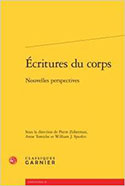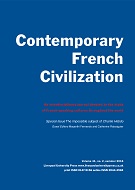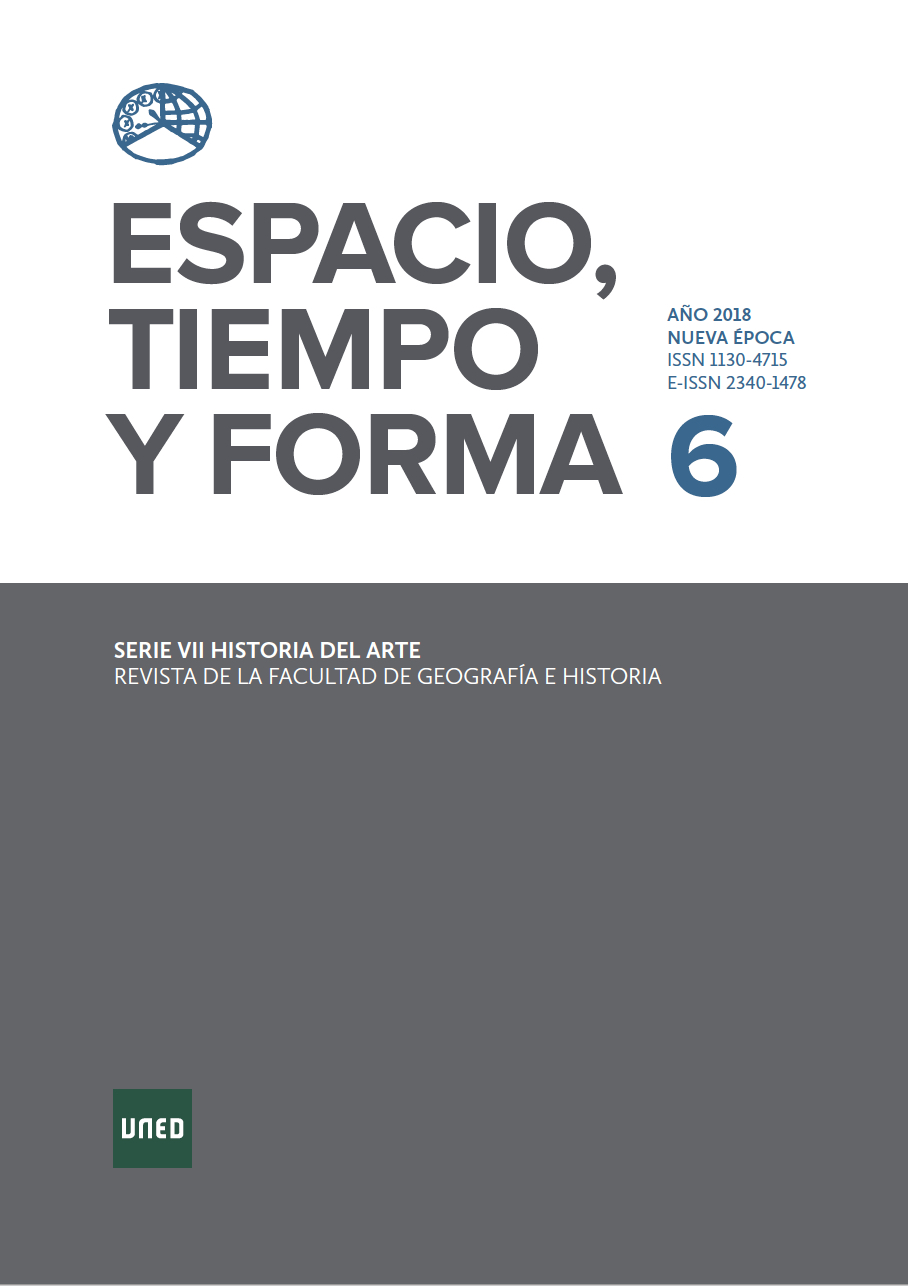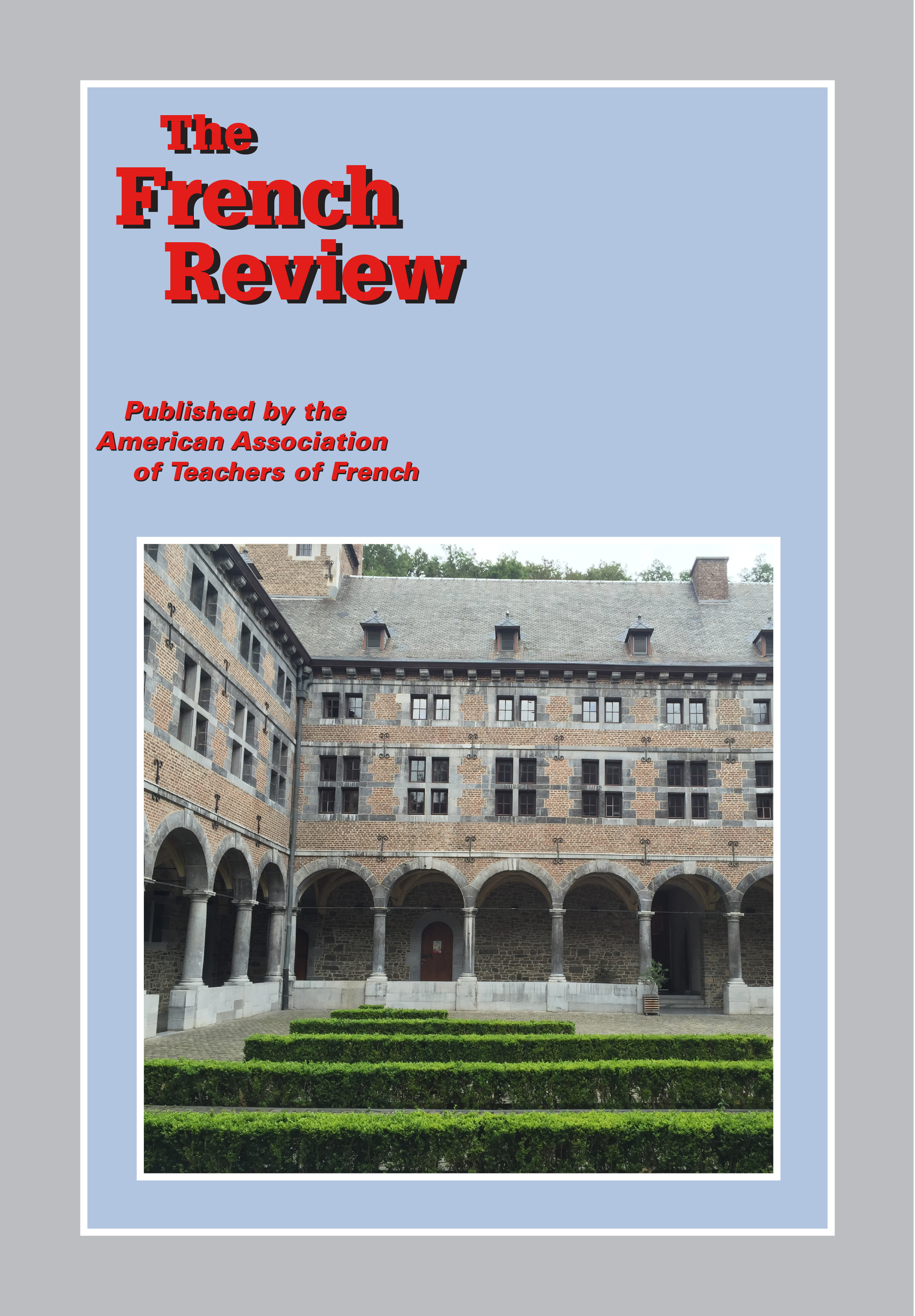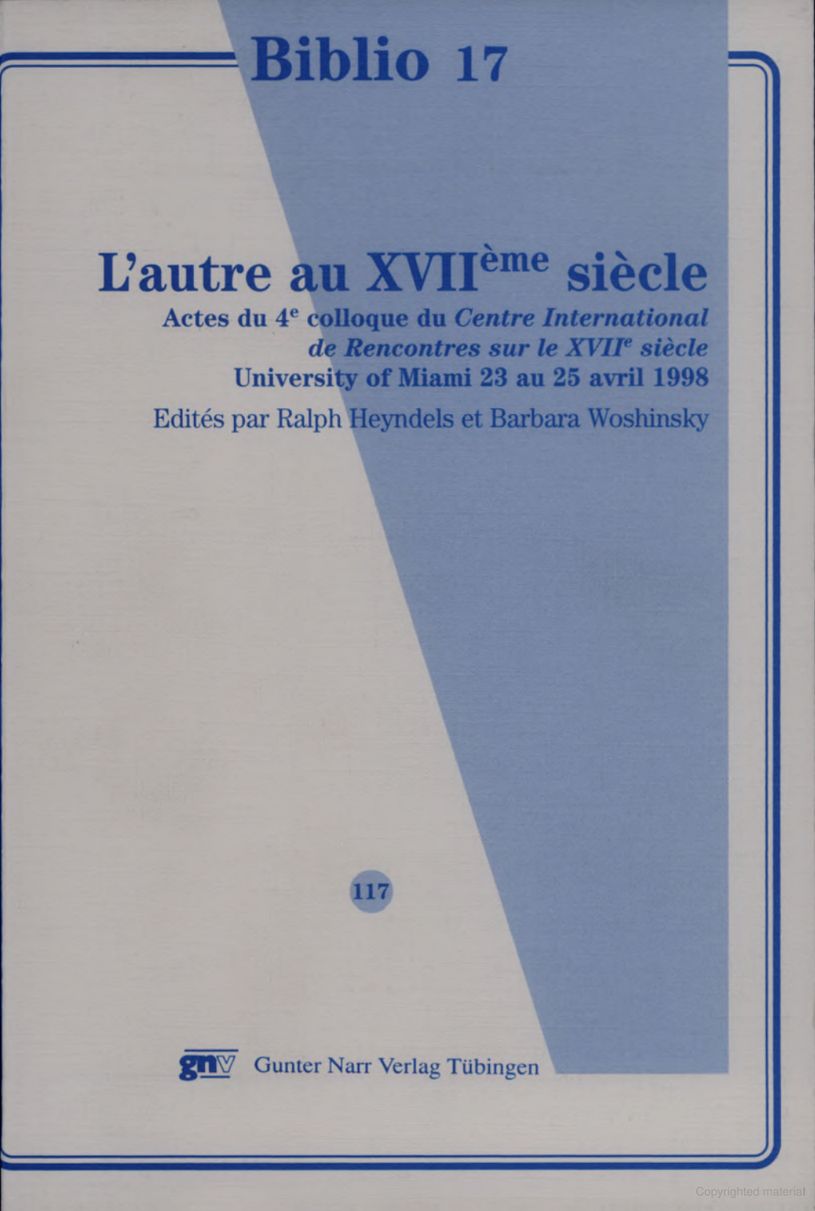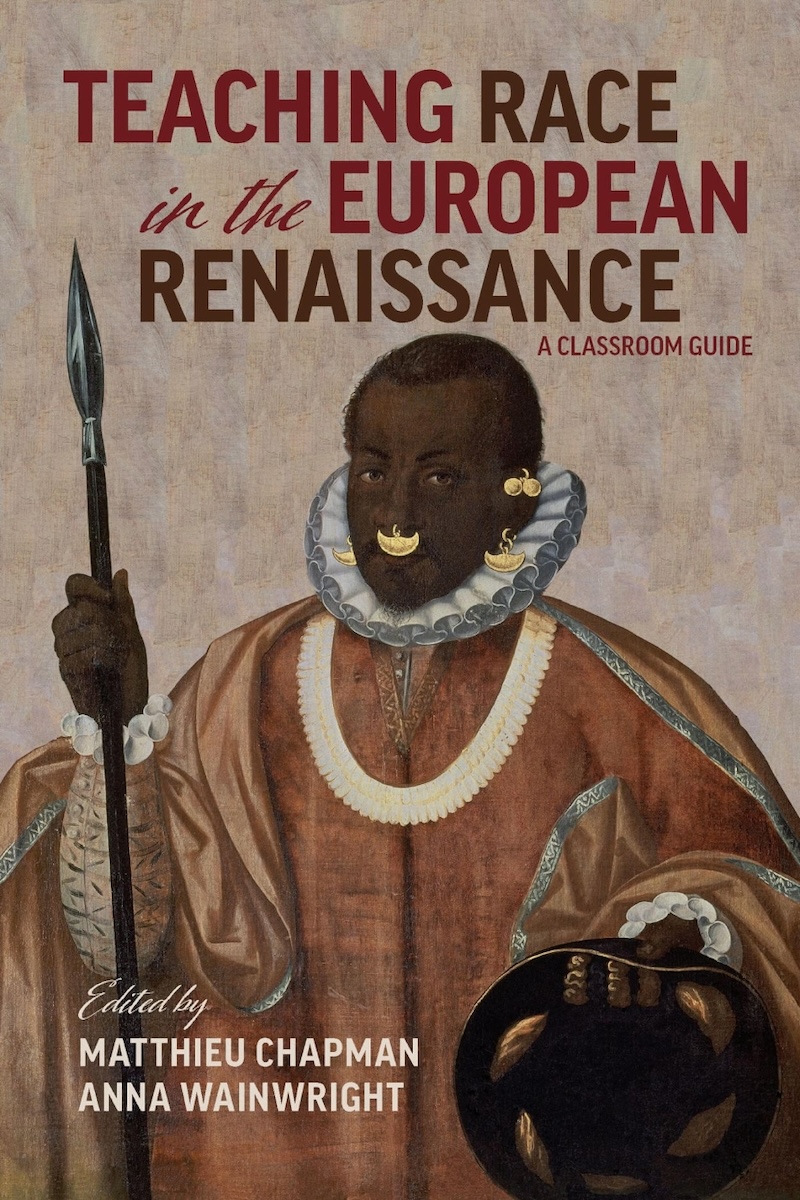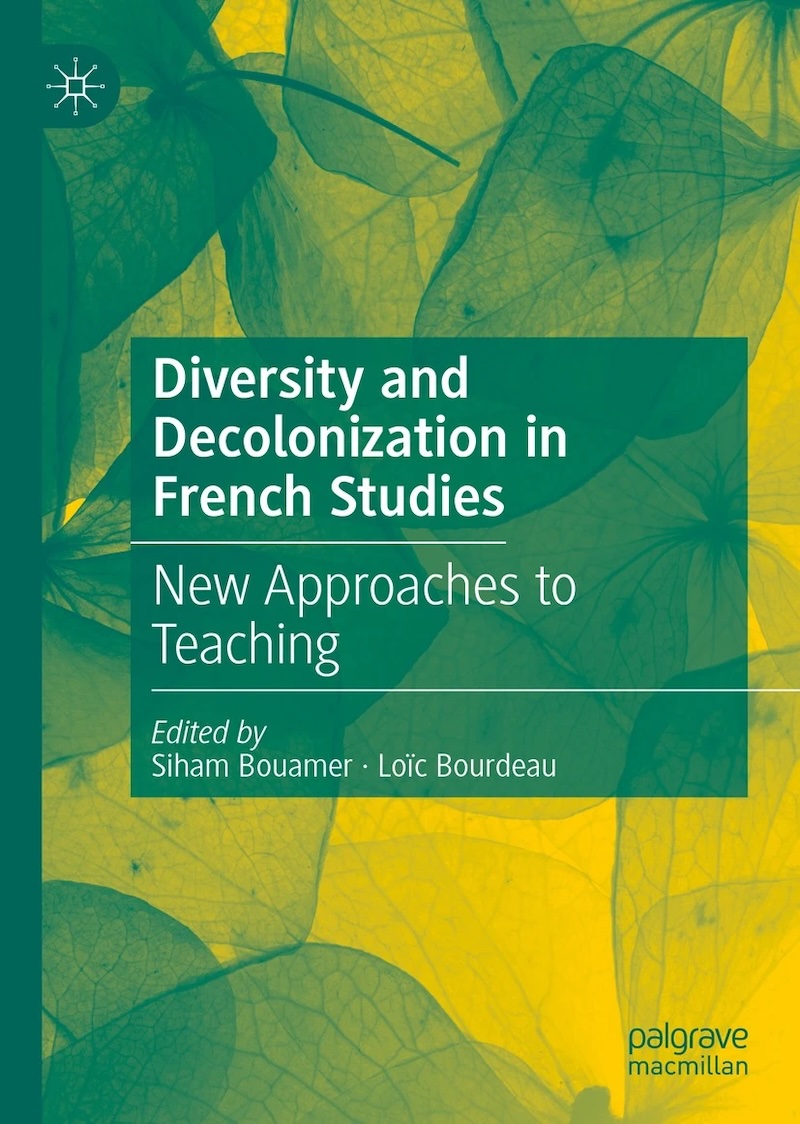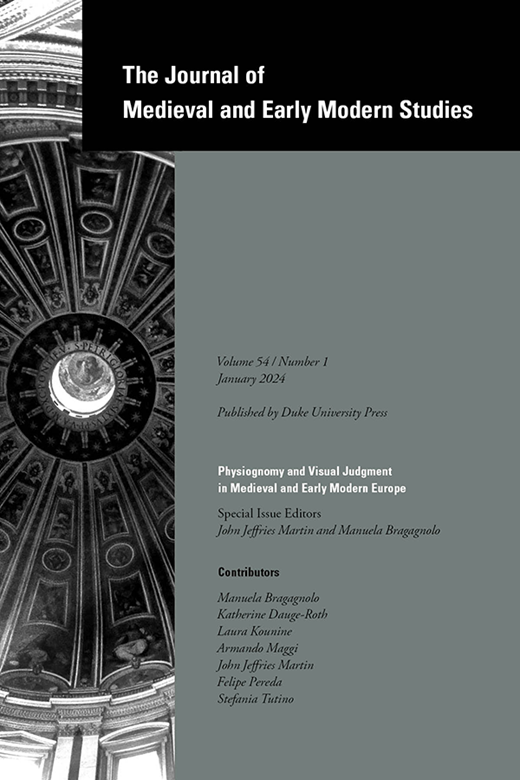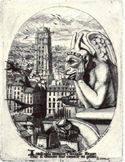“Skin Tactics: Epidermal Imposture in Early Modern France,” 42nd Annual Conference of the Society for Interdisciplinary Seventeenth-Century French Studies, Rochester, NY, October 19-21, 2023.
“Indigenous Skin: Reading Native American Skin Color in Seventeenth-Century France,” Cultures of Skin: Skin in Literature and Culture, Past, Present, Future, University of Surrey, UK, July 7-8, 2023.
“A ‘Fifth Race?’: The Question of Native American Skin Color in the Definition of Difference,” Renaissance Society of America, San Juan, Puerto Rico, March 9-11, 2023.
Roundtable Participant, Co-Organizer, and Co-Chair with Craig Koslofsky, “Marking Skin in the Early Modern World: New Approaches,” Renaissance Society of America, San Juan, Puerto Rico, March 9-11, 2023.
Invited guest lecture, “Maternal Imagination, Skin Color, and Colonial Anxieties in Early Modern France and the French Antilles,” City University of New York Graduate Center, November 11, 2022.
Invited participant, online conference and workshop on Physiognomy and Visual Judgment in Medieval and Early Modern Europe, organized by Manuela Bragagnolo and John Jeffries Martin, October 29, 2022.
Invited presentation, international colloquium on “Textes et corps sous le scalpel. Pratiques de la mutilation en France (1500-1800),” Georg-August-Universität Göttingen, Göttingen, Germany, June 9-11, 2022.
Invited presentation, “Defining Blackness: Early Debates about Skin Color at Théophraste Renaudot’s Bureau d’adresse et de rencontre,” concluding conference to celebrate Renaissance Skin, funded by a grant from the Wellcome Institute for the History of Medicine, primary investigator historian Evelyn Welch, King’s College London, June 8-9, 2022.
“Black Women Making White Babies, White Women Making Black Babies: Maternal Imagination, Skin Color, and Inter-Racial Sexuality in the French Antilles,” 40th Annual Conference of the Society for Interdisciplinary Seventeenth-Century French Studies, Virtual Conference, October 14-15 and 22-23, 2021.
Presentation of the “Early Modern Race Theory” project and workshop leader with Drs. Valentine Balguerie, Valentina Denzel, Domna C. Stanton, Ashley Williard, and Daniel Worden, 40th Annual Conference of the Society for Interdisciplinary Seventeenth-Century French Studies, Virtual Conference, October 14-15 and 22-23, 2021.
Invited presentation, “Essentializing Difference through Skin Color in Early Seventeenth-Century France,” Online conference on “Approaches to Skin in Literature and Culture,” organized by Charlotte Mathieson and Nicole Nyffeneggar, June 10-11, 2021.
“Defining Blackness: Difference, Skin Color, and Enslavement in the Early Seventeenth Century,” North American Society for Seventeenth-Century French Literature, University of Iowa, Iowa City (Online), May 28-29, 2021.
Invited session respondent, “Marking Difference: Tattooed Bodies in Cross- Cultural Contexts,” Renaissance Society of America (Online), April 13-15 and April 20-22, 2021.
“Maternal Marks: Women’s Desire and Imprinting Fetal Skin” as part of a session co-organized on “Gendered Impressions: Early Modern Women and Marks on Skin,” Renaissance Society of America (Online), April 13-15 and April 20-22, 2021.
Invited to present concluding roundtable remarks with Craig Koslofsky for the invited colloquium on “Tattooed Bodies in Early Modern Worlds,” organized by Sebestian Kroupa of the Renaissance Skin Project, King’s College, London (Online), March 30-31, 2021.
“Globalizing the Early Survey,” with co-presenter Charlotte Daniels, 1st Annual (Online) Conference on Diversity, Decolonization, and the French Curriculum, November 13-14, 2020.
“Early Debates about Skin Color at Théophraste Renaudot’s Bureau d’adresse et de rencontre,” The Society of Interdisciplinary French Seventeenth-Century Studies 38th Annual Conference, Online, October 22-23 and November 6-7, 2020.
Invited presentation through Zoom conference of Signing the Body: Marks on Skin in Early Modern France, organized by the Renaissance Skin Project, funded by a grant from the Wellcome Institute for the History of Medicine, King’s College, London, primary investigator historian Evelyn Welch, May 1, 2020.
“Globalizing the Early Survey: Dilemmas, Challenges, Rewards,” The Society of Interdisciplinary French Seventeenth-Century Studies 37th Annual Conference, December 17-19, 2018.
“Material Memory: Pilgrim Tattoos, Skin, and Identity,” Renaissance Society of America, New Orleans, LA, March 22-25, 2018.
“Skin, Paper, and Parchment: Healing Words in Early Modern Europe,” invited colloquium on “The Legible Body: Skin, Paper and Parchment in Early Modern Europe,” King’s College, London, November 29, 2017 preceding the “Porous Bodies” Conference, King’s College, London, November 30-December 1, 2017.
“A Science of Specters: Demonology’s Ghosts,” The Society of Interdisciplinary French Seventeenth-Century Studies 36th Annual Conference, Oakland and Palo Alto, CA, November 2-4, 2017.
“Physical Graffiti: Engraving Bark, Stone, and Skin in the Pastorale,” The Society of Interdisciplinary French Seventeenth-Century Studies 35th Annual Conference, Hanover, NH, November 10-13, 2016.
“Material Memory: Holy Land Pilgrimage as Embodied Experience,” Sixteenth-Century Society Conference, Bruges, Belgium, August 18-20, 2016.
“Entertaining Ideas: Scientific Spectacle and the Transmission of Knowledge,” North American Society for Seventeenth-Century French Literature, Winter Park and Orlando, FL, June 1-3, 2016.
“The Ephemerides of Love: Cosmographical Satire of Gender Relations in Seventeenth-Century France,” 62nd Annual Meeting of the Renaissance Society of America, Boston, March 31-April 2, 2016. Presentation as part of a session I organized on “Between Science and Fiction: Cosmology and Society in the Grand Siècle.”
“Cutaneous Marks and Popular Healing in Early Modern Europe,” American Comparative Literature Association, Harvard University, March 17-20, 2016. Presentation as part of an interdisciplinary seminar on “Signs, Symptoms, Stigmata: Early Modern Techniques of Inscribing the Body and Their Contemporary Relevance” that I a co-organized and led with Peter Erickson.
“The Well-Traveled Tattoo: Hybrid Identities in New France,” The Society of Interdisciplinary French Seventeenth-Century Studies 34th Annual Conference, New Brunswick, NJ, November 5-7, 2015.
“Shooting the Moon: Women Astronomers in Seventeenth-Century France,” Medieval and Early Modern Studies (MEMS) Symposium, “Science Before Science,” Bowdoin College, February 27-28, 2015.
"The Pilgrim's Body: Holy Land Pilgrimage as Embodied Experience," Modern Languages Association, Vancouver, BC, January 8-11, 2015.
“Shooting the Moon: Women Astronomers in Early Modern France,” North American Society for Seventeenth-Century French Literature, Durham, NC, May 15-17. 2014.
“Signs of a Cure: Corporeal Marking and Popular Healing in Early Modern Europe,” Popular Culture Association, Chicago, IL, April 16-19, 2014.
“Signes de vie: Marks on Skin and Identity in Early Modern France.” North American Society for Seventeenth-Century French Literature Annual Conference, Nashville, TN, May 25-27, 2012.
“Marks of Identity: Passports and Tattoos for the Cosmopolitan Traveler.” Society for Interdisciplinary Seventeenth-Century Studies 30th Annual Conference, Lexington, KY, November 3-5, 2011.
“Stigma: Imprinting the Criminal Body in Early Modern France.” Écritures du corps/Writing the Body, International conference organized by the CENEL and the University of Sussex, Université Paris 13, November 18-20, 2010.
“New France Encounters, Old World Practices: Rewriting the Early Modern History of the Tattoo.” Session on “Relating New France in the Seventeenth Century” (presenter and session organizer), Western Society for French History Annual Conference, The University of Laval, Québec, Canada, November 6-9, 2008.
“The Wanderings of the Worn Word.” Society for Interdisciplinary Seventeenth-Century Studies 27th Annual Conference, Saskatoon, Saskatchewan, October 23-23, 2008.
“Plagued by Love: Tales of Infectious Affections.” Session on “Disease and Contagion.” The Society for Interdisciplinary French Seventeenth-Century Studies Annual Conference, The University of Iowa, Iowa City, Iowa, October 12-14, 2006.
“Prêt à porter: The Rhetoric of the Worn Word.” Session on “Rhetoric and the Body,” Kentucky Foreign Language Conference, The University of Kentucky, Lexington, Kentucky, April 20-22, 2006.
“Shaping the Woods, (In)Forming the City: Pastoral and Urban Graffiti in Seventeenth-Century France.” Session on “Forms and Shapes / Formes Concrètes,” North American Society for Seventeenth-Century French Literature Annual Conference: “Formes et Formations au XVIIe siècle,” University of South Carolina, Columbia, South Carolina, April 14-16, 2005.
“Crossing Lines, Encouraging Ownership: Teaching the Occult Early Modern.” Session on “Teaching the Seventeenth Century,” The Society for Interdisciplinary French Seventeenth-Century Studies Annual Conference, The College of William and Mary, Williamsburg, Virginia, October 28-30, 2004.
“Textual Performance: Imprinting the Criminal Body.” Session on “Print and Performance,” North American Society for Seventeenth-Century French Literature Annual Conference: “Intersections,” Dartmouth College, Hanover, New Hampshire, May 8-10, 2003.
“Gendered Impressions: Marking the Body in Early Modern France.” Session on “Gender and Philosophy,” Kentucky Foreign Language Conference, The University of Kentucky, Lexington, Kentucky, April 24-26, 2003.
“Stigma: The Criminal Body as a Site of Memory.” Organized and chaired session on “Inscribing Memory on the Body,” The Group for Early Modern Cultural Studies Annual Conference, Tampa, Florida, November 15-17, 2002.
“Demonic Signatures, Divine Stigmata: The Female Body Inscribed.” Session on “Early Modern Women and Gender,” Western Society for French History Annual Conference, Baltimore, Maryland, October 3-5, 2002.
“Gossip and Gossipers in the Court of Louis the XIVth.” Presentation and post-play discussion leader on Molière’s Misanthrope in Portland Stage Company’s “Scholars on Stage” series, October, 2001.
“Femmes lunatiques: Women and the Moon in Early Modern France.” Session on “Reading Signs: Astrology and Superstition,” Kentucky Foreign Language Conference, The University of Kentucky, Lexington, Kentucky, April 19-21, 2001.
“The Possessed Body, Inside Out: Reading, Writing, and Authority in Cases of Demonic Possession.” Session on “Bodies/Borders: Constructing the Corporeal in the Early Modern,” Kentucky Foreign Language Conference, The University of Kentucky, Lexington, Kentucky, April 27-28, 2000.
“Fleshy Thresholds and Paratextual Prescriptions: Writing the Body in Cases of Demonic Possession.” Session on “Paratexts and Thresholds / Paratextes et seuils,” The Society for Interdisciplinary French Seventeenth-Century Studies Annual Conference, Lexington, Kentucky, November 11-13, 1999.
“Writing Violence in Women’s Memoirs of Possession.” Organized and chaired session on “Writing Violence,” Kentucky Foreign Language Conference, The University of Kentucky, Lexington, Kentucky, April 22-24, 1999.
“Signing the Body: Demonic Wounds and Sacred Scars in Early Modern Possession Narratives.” Session on “Written on the Body,” MLA Convention, San Francisco, California, December 27-30, 1998.
“Medicine at the Margin: Demonic Possession and the Limits of the Natural.” Session on “Science and Frontiers / Science et frontières,” The Society for Interdisciplinary French Seventeenth-Century Studies Annual Conference, Orange, California, October 8-10, 1998.
“Médiations, figures et expériences de l’autre vie: Jean-Joseph Surin à la rencontre du démoniaque.” Session on “Religion et mysticisme,” Centre International de Rencontres sur le XVIIème Siècle, “L’Autre au Dix-Septième Siècle,” Miami, Florida, April 23-25, 1998.
“Voices of Authority: Transgression and Truth-Telling in Seventeenth-Century Cases of Demonic Possession.” Session on “Authority and Transgression / L’autorité et la transgression,” The Society for Interdisciplinary French Seventeenth-Century Studies Annual Conference, New Bern, North Carolina, October 16-18, 1997.
“(Un)veiling the Demonic.” Workshop on “Catholicism Reads Veiled Bodies,” The Rhetorics and Rituals of (Un)Veiling in Early Modern Europe Conference, The University of Michigan, Ann Arbor, Michigan, October 3-5, 1997.
“Écriture possédée et reprise de possession: Les mémoires de Sœur Jeanne des Anges (1644).” Colloque “Littératures,” Université de Franche-Comté, Besançon, France, June 1-2, 1997.
“Bodily Fluids and Gender Fluidity: Writing Excess in Sixteenth-Century Medical Discourse.” The Fifth Annual Medieval, Renaissance and Baroque Symposium, The University of Miami, Miami, Florida, February 22-24, 1996.
“Translating Texts, Translating Bodies: The Life of Saint Alexis and the Medieval Cult of Relics.” The Second Annual Forum for Graduate Students of French and Francophone Studies, The University of Michigan, Ann Arbor, Michigan, May 7, 1994.

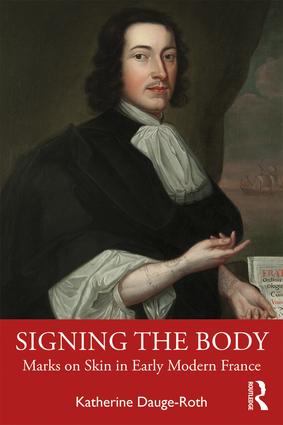
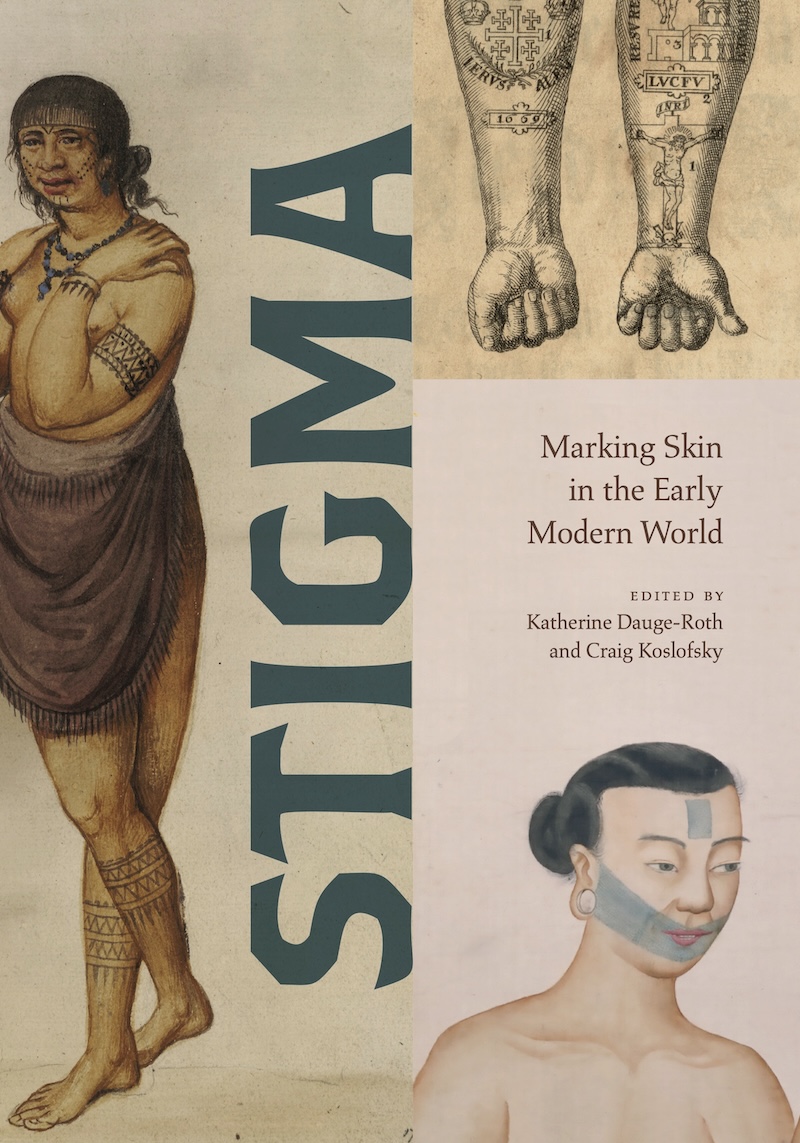 Stigma: Marking Skin in the Early Modern World
Stigma: Marking Skin in the Early Modern World